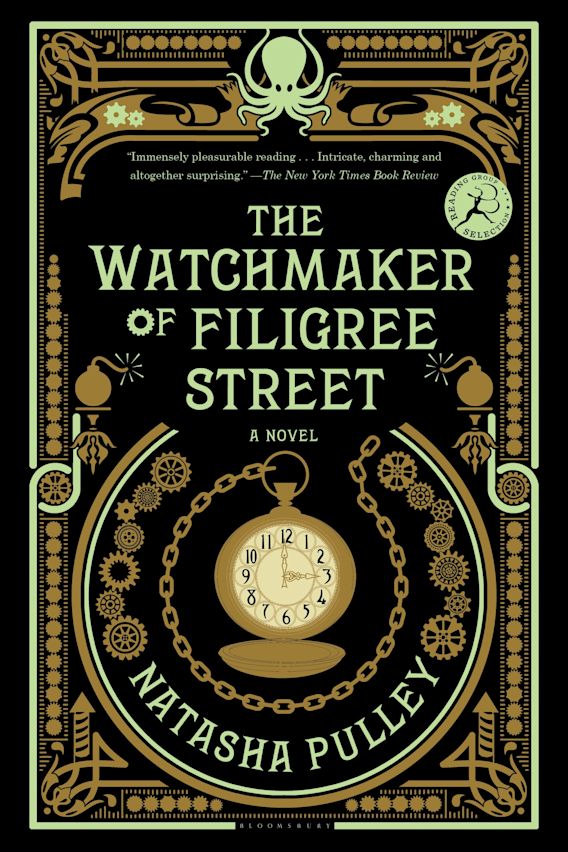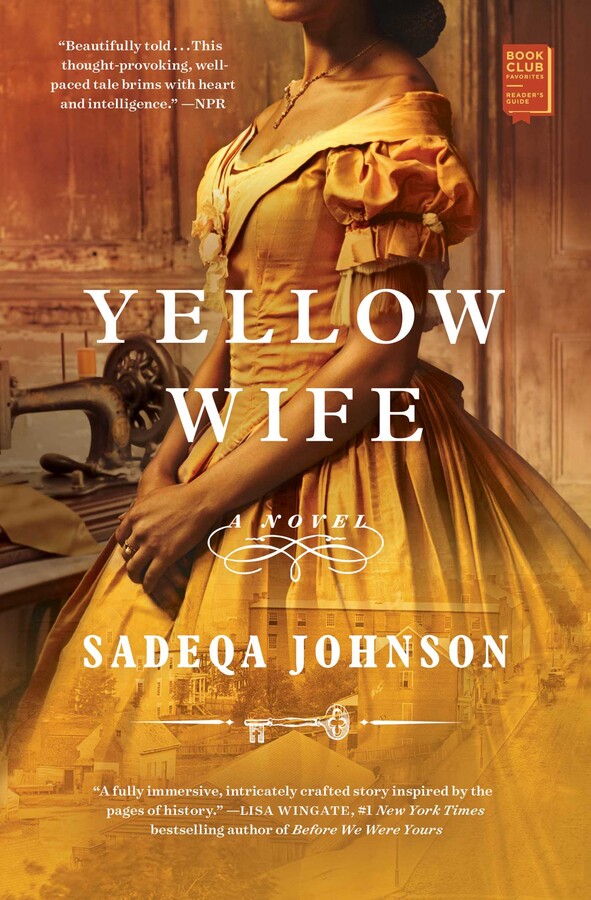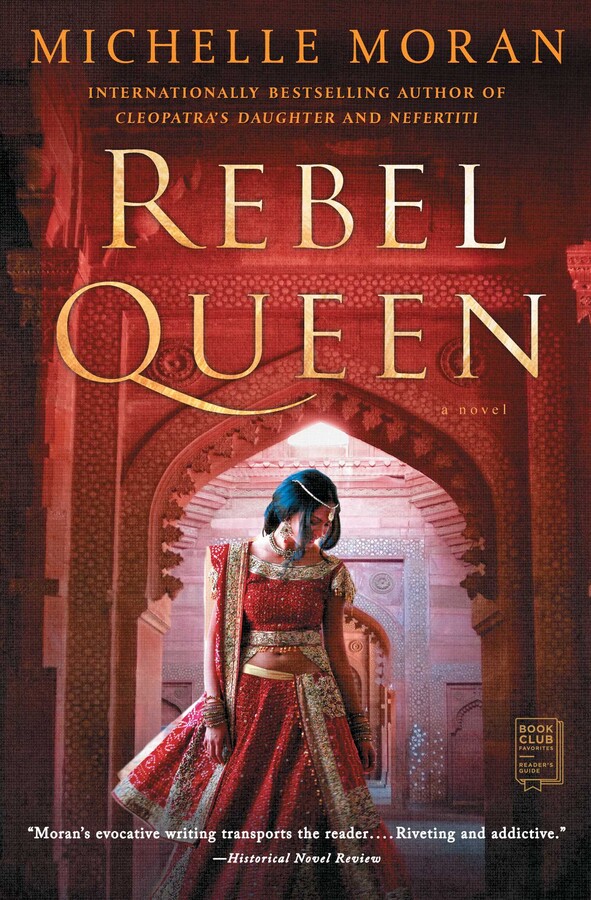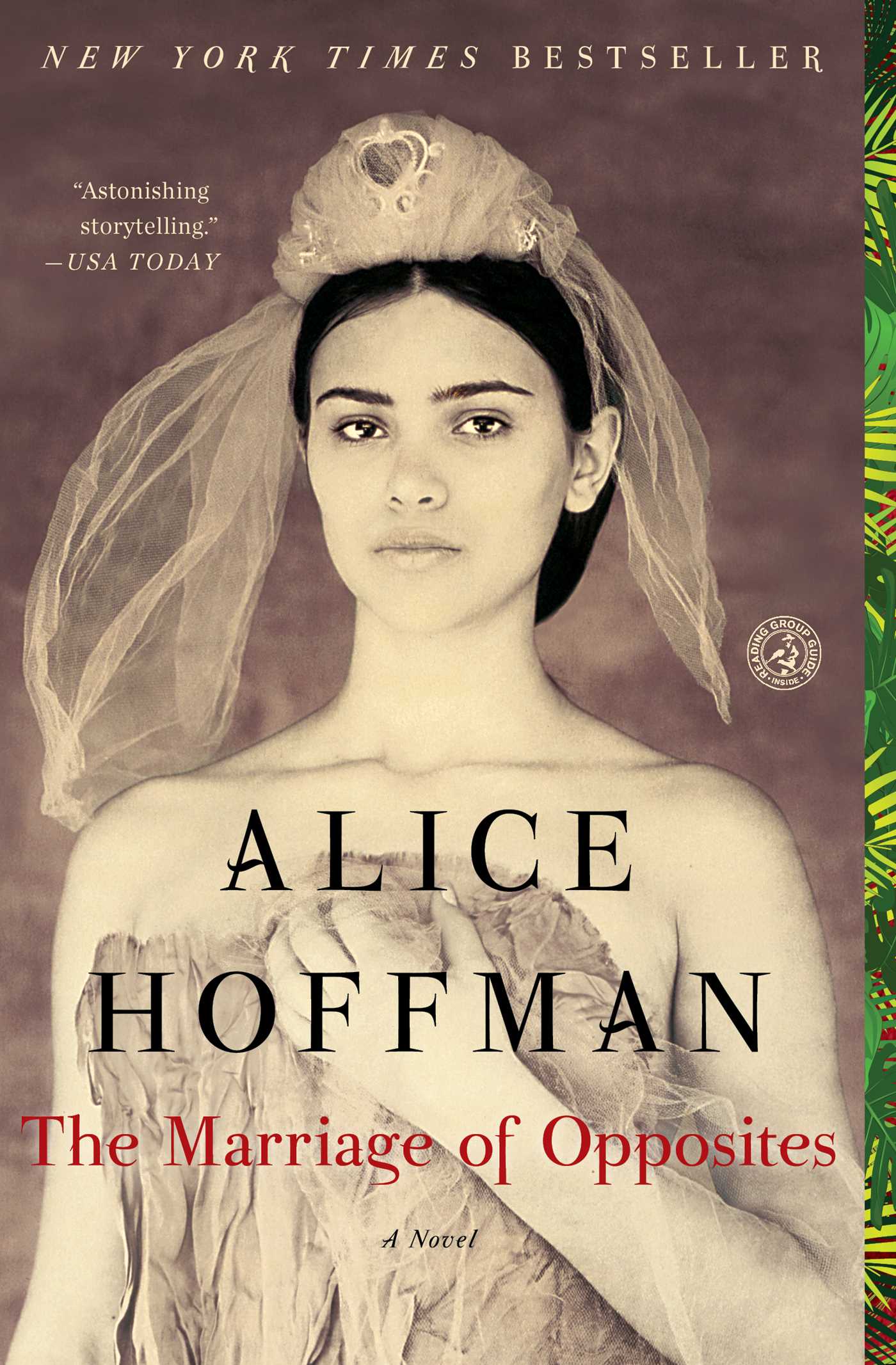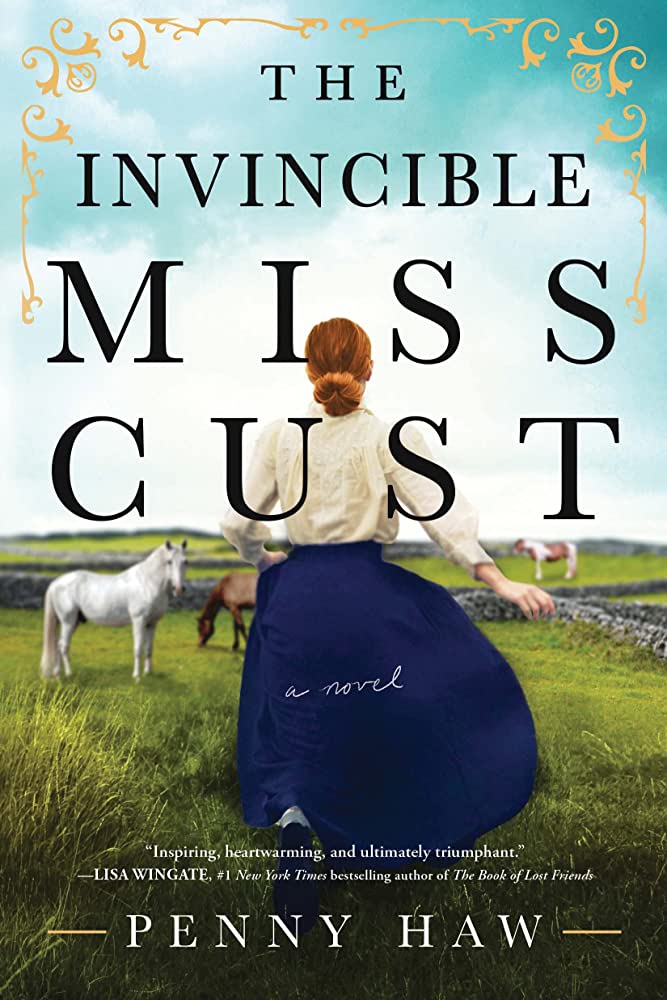Summertime promises long days and even longer months’ worth of quality reading time. Why not take this wide-spanning time as an opportunity to get to know one of the most vibrant and varied—and my favorite—periods: the long nineteenth century. These ten historical fiction titles all span the breadth of the nineteenth century and, through meticulous research and richly atmospheric detail, capture the true range of topics, settings, voices, and issues that defined a truly undefinable time. Often steered by headstrong women and underheard voices, these novels unpack the often too familiar and too cliché narratives that we know about the 1800s and show us that there is so much more for us to see.

10 Superb Historical Fiction Books Spanning the 19th Century
In nineteenth-century Richmond, Virginia, Maggie Lena Walker spent her childhood helping her formerly enslaved mother with her laundry service. There, she witnessed the massive divide between their Black community and her mother’s wealthy white clients and became determined to ensure a better life for herself and those around her. A RIGHT WORTHY WOMEN is the inspiring story of how her hard work and determination—plus support from friends like W. E. B. DuBois and Mary McLeod—led her to be the first Black woman to start and run an American bank.
In the vein of The Engineer’s Wife and Carolina Built, an inspiring novel based on the remarkable true story of Virginia’s Black Wall Street and the indomitable Maggie Lena Walker, the daughter of a formerly enslaved woman who became the first Black woman to establish and preside over a bank in the United States.
Maggie Lena Walker was ambitious and unafraid. Her childhood in 19th-century Virginia helping her mother with her laundry service opened her eyes to the overwhelming discrepancy between the Black residents and her mother’s affluent white clients. She vowed to not only secure the same kind of home and finery for herself, but she would also help others in her community achieve the same.
With her single-minded determination, Maggie buckled down and went from schoolteacher to secretary-treasurer of the Independent Order of St. Luke, founder of a newspaper, a bank, and a department store where Black customers were treated with respect. With the help of influential friends like W.E.B. DuBois and Mary McLeod, she revolutionized Richmond in ways that are still felt today. Now, her rich, full story is revealed in this stirring and intimate novel.
Goes First, a Crow Native woman, is renamed Mary by Abe Farwell, the white fur trader she marries at age sixteen in 1872. On their long trek to his trading post in Canada, Mary learns to love the man she has married, despite discovery of a dark secret from his past. But soon after the winter trading season ends, a group of traders—including a cruel wolfer named Stiller—massacre forty Nakota and take five women hostage. When Farwell won’t go to rescue them, Mary does, launching decades of conflict, not least of which between herself and her husband.
The New York Times bestselling author of the “touching” (The Boston Globe) book club classics The Kitchen House and the “emotionally rewarding” (Booklist) Glory Over Everything returns with a sweeping saga inspired by the true story of Crow Mary—an indigenous woman torn between two worlds in 19th-century North America.
In 1872, sixteen-year-old Goes First, a Crow Native woman, marries Abe Farwell, a white fur trader. He gives her the name Mary, and they set off on the long trip to his trading post in the Cypress Hills of Saskatchewan, Canada. Along the way, she finds a fast friend in a Métis named Jeannie; makes a lifelong enemy in a wolfer named Stiller; and despite learning a dark secret of Farwell’s past, falls in love with her husband.
The winter trading season passes peacefully. Then, on the eve of their return to Montana, a group of drunken whiskey traders slaughters forty Nakota—despite Farwell’s efforts to stop them. Mary, hiding from the hail of bullets, sees the murderers, including Stiller, take five Nakota women back to their fort. She begs Farwell to save them, and when he refuses, Mary takes two guns, creeps into the fort, and saves the women from certain death. Thus, she sets off a whirlwind of colliding cultures that brings out the worst and best in the cast of unforgettable characters and pushes the love between Farwell and Crow Mary to the breaking point.
From an author with a “stirring and uplifting” (David R. Gillham, New York Times bestselling author) voice, Crow Mary sweeps across decades and the landscape of the upper West and Canada, showcasing the beauty of the natural world, while at the same time probing the intimacies of a marriage and one woman’s heart.
MENTIONED IN:
It’s 1886 and young Eliza Brightwell has just arrived on the Western Australia shore. She’s wary of this place that has drawn her father to it with the promise of pearls. A decade later, Eliza has acclimated to the glamor of her new life; but when her father goes missing on one of his ocean expeditions, Eliza is determined to discover what really happened to him. Rich and expertly researched, MOONLIGHT AND THE PEARLER’S DAUGHTER is an adventure tale with a headstrong woman at its helm.
For readers of The Light Between Oceans and The Island of Sea Women, a feminist adventure story set against the backdrop of the dangerous pearl diving industry in 19th-century Western Australia, about a young English woman who sets off to uncover the truth about the disappearance of her eccentric father.
Western Australia, 1886. After months at sea, a slow boat makes its passage from London to the shores of Bannin Bay. From the deck, young Eliza Brightwell and her family eye their strange, new home. Here is an unforgiving land where fortune sits patiently at the bottom of the ocean, waiting to be claimed by those brave enough to venture into its depths. An ocean where pearl shells bloom to the size of soup plates, where men are coaxed into unthinkable places and unspeakable acts by the promise of unimaginable riches.
Ten years later, the pearl-diving boat captained by Eliza’s eccentric father returns after months at sea—without Eliza’s father on it. Whispers from townsfolk point to mutiny or murder. Headstrong Eliza knows it’s up to her to discover who, or what, is really responsible.
As she searches for the truth, Eliza discovers that beneath the glamorous veneer of the pearling industry, lies a dark underbelly of sweltering, stinking decay. The sun-scorched streets of Bannin Bay, a place she once thought she knew so well, are teeming with corruption, prejudice, and blackmail. Just how far is Eliza willing to push herself in order to solve the mystery of her missing father? And what family secrets will come to haunt her along the way?
A transporting feminist adventure story based on Lizzie Pook’s deep research into the pearling industry and the era of British colonial rule in Australia, Moonlight and the Pearler’s Daughter is ultimately about the lengths one woman will travel to save her family.
MENTIONED IN:
Thaniel Steepleton is surprised one day in 1883 to find that a gold pocket watch has appeared on his pillow in his London apartment. When the timepiece saves his life by drawing him away from an explosion months later, he seeks out its maker: a gentle and lonely Japanese immigrant named Keita Mori. Despite Mori’s kind nature, Thaniel suspects he’s hiding something; and when Grace Carrow, an Oxford physicist, comes to them on a mission of her own, Thaniel’s loyalties will be tested in this atmospheric and magical tale.
In the summer of 1897 singer Enrico Caruso goes to Tuscany to sing with the famed soprano Ada. While Ada’s young sister Rina falls in love with Enrico, it is Ada he can’t get out of his mind as they begin practicing together. Caruso’s star rises as he begins an affair with Ada. Meanwhile, Rina, driven by jealousy, takes up opera to try to replace Ada. When the affair ends in scandal, Enrico begins a new life as the star of the Metropolitan Opera, where he meets a shy American girl who teaches him what love truly means.
A NOVEL OF PASSION AND BETRAYAL, ART AND AMBITION BASED ON THE LIFE OF ONE OF THE GREATEST OPERA SINGERS OF ALL TIME
One summer day in 1897, a young singer, Enrico Caruso, arrives at the home of the Giachetti family. He has come to Livorno to sing on the summer stage with Ada Giachetti, a famous and beautiful soprano. Ada's mother offers him a spare room, and before Ada herself has a chance to meet the unknown tenor, her younger sister, Rina, arrives home from the market and falls fatefully in love.
With the help of singing lessons from Ada, Caruso wins the leading role in Puccini's new opera La Bohème. Although Caruso loves Rina, it is Ada he adores, and they soon become lovers. Heartbroken, Rina becomes an opera singer too, hoping to take her sister's place. For decades, the two sisters are locked in a struggle to be the star on Caruso's stage and in his bed, while Caruso's voice grows more and more unimaginably beautiful.
But as his relations with the two sisters break down in scandal and tragedy, the now world-famous Caruso builds a new life for himself as the star of the Metropolitan Opera in New York. There, far from the drama and passion of Caruso's Tuscan life, a shy young American woman will win his heart and, taking the greatest leap of faith of all, supplant Ada and Rina as his one true love.
In this challenging and immersive novel, Pheby, born enslaved on a plantation in Virginia, is raised in the main house because she is the daughter of her enslaver, who raped her mother, Ruth. Ruth made him promise: her daughter would be set free on her eighteenth birthday. Instead, a series of tragedies lead to Pheby ending up in Devil’s Half Acre, an infamous jail where the enslaved are kept and tortured daily. There, Pheby will have to outsmart the cruel Jailer and sacrifice more than she thought possible to stay alive.
Called “wholly engrossing” by New York Times bestselling author Kathleen Grissom, this “fully immersive” (Lisa Wingate, #1 bestselling author of Before We Were Yours) story follows an enslaved woman forced to barter love and freedom while living in the most infamous slave jail in Virginia.
Born on a plantation in Charles City, Virginia, Pheby Delores Brown has lived a relatively sheltered life. Shielded by her mother’s position as the estate’s medicine woman and cherished by the Master’s sister, she is set apart from the others on the plantation, belonging to neither world.
She’d been promised freedom on her eighteenth birthday, but instead of the idyllic life she imagined with her true love, Essex Henry, Pheby is forced to leave the only home she has ever known. She unexpectedly finds herself thrust into the bowels of slavery at the infamous Devil’s Half Acre, a jail in Richmond, Virginia, where the enslaved are broken, tortured, and sold every day. There, Pheby is exposed not just to her Jailer’s cruelty but also to his contradictions. To survive, Pheby will have to outwit him, and she soon faces the ultimate sacrifice.
MENTIONED IN:
Told from the perspective of Queen Lakshmi’s most trusted soldier in her all-female army, REBEL QUEEN is the awe-inspiring and vibrant story of India’s Joan of Arc. When the British Empire decides to conquer India in the mid-nineteenth century, they don’t anticipate the dual army—one all-male and one all-female—that Queen Lakshmi has raised to repel them. Despite the overwhelming odds against her, Lakshmi is determined to fight for the country she loves and unite the kingdoms that have long divided it.
From the internationally bestselling author of Nefertiti and Cleopatra’s Daughter comes the breathtaking story of Queen Lakshmi—India’s Joan of Arc—who against all odds defied the mighty British invasion to defend her beloved kingdom.
When the British Empire sets its sights on India in the mid-nineteenth century, it expects a quick and easy conquest. India is fractured and divided into kingdoms, each independent and wary of one another, seemingly no match for the might of the English. But when they arrive in the Kingdom of Jhansi, the British army is met with a surprising challenge.
Instead of surrendering, Queen Lakshmi raises two armies—one male and one female—and rides into battle, determined to protect her country and her people. Although her soldiers may not appear at first to be formidable against superior British weaponry and training, Lakshmi refuses to back down from the empire determined to take away the land she loves.
Told from the unexpected perspective of Sita—Queen Lakshmi’s most favored companion and most trusted soldier in the all-female army—Rebel Queen shines a light on a time and place rarely explored in historical fiction. In the tradition of her bestselling novel, Nefertiti, and through her strong, independent heroines fighting to make their way in a male dominated world, Michelle Moran brings nineteenth-century India to rich, vibrant life.
From bestselling and beloved author Alice Hoffman comes the story of famed impressionist painter Camille Pissarro’s mother. Rachel was raised in early 1800s St. Thomas in a small community of Jewish refugees who escaped the Inquisition, but she dreams of a life in Paris. Nevertheless, she is married off to a widower to save her father’s business. When her older husband dies, however, his younger and more handsome nephew Frédérick arrives to settle the estate. Rachel takes her life into her own hands and begins a scandalous affair that impacts the family for years to come.
Wendy’s Fictional Dinner Party Guest: Rachel Pomié Petit Pizzarro
Rachel Pomié Petit Pizzarro is a woman full of fire and life. A businesswoman, a romantic, a renegade, she’s quite the nineteenth-century badass, not taking anyone else’s advice on how to live her life. I respect and admire her passion, vulnerability, and fearlessness in the face of the judgment of her insular St. Thomas community. She followed her heart, suffered for it, and lived the life she wanted—with a great love and many children, one of whom was the artist Camille Pissarro, father of Impressionism. No doubt, she would command the room.
MENTIONED IN:
Despite being raised in an aristocratic British family, Aleen knows that her calling in life is to work with animals. Too bad that in 1870s Ireland, where she was raised, no woman has ever gone into veterinary science before. Regardless of this fact or her family’s disapproval, Aleen enrolls in the New Veterinary College in Edinburgh under a new name to save her family from embarrassment. And despite the formidable odds she faces as she attempts to break into an all-male profession, Aleen is determined to succeed in this heartwarming and impeccably researched novel.
Doctor Livingstone is an English explorer and missionary living in Africa when he dies. His sharp-tongued cook Halima and an unyieldingly religious, formerly enslaved man named Jacob Wainwright make the brave and loyal decision to carry his body fifteen hundred miles across nineteenth-century Africa to deliver it to a boat that will take his remains and his records home. Reflecting all the contradictions and hypocrisies of colonization and the untold acts of resilience and love alike, OUT OF DARKNESS, SHINING LIGHT is an imaginative and startling novel from Zimbabwean lawyer and author Petina Gappah.
“Engrossing, beautiful, and deeply imaginative” (Yaa Gyasi, author of Homegoing), this epic novel about the explorer David Livingstone and the extraordinary group of Africans who carry his body across impossible terrain “illuminates the agonies of colonialism and blind loyalty” (O, The Oprah Magazine).
“This is how we carried out of Africa the poor broken body of...David Livingstone, so that he could be borne across the sea and buried in his own land.”
So begins Petina Gappah’s “searing…poignant” (Star Tribune, Minneapolis) novel of exploration and adventure in 19th-century Africa—the captivating story of the African men and women who carried explorer and missionary Dr. Livingstone’s body, papers, and maps, fifteen hundred miles across the continent of Africa, so his remains could be returned home to England and his work preserved there. Narrated by Halima, the doctor’s sharp-tongued cook, and Jacob Wainwright, his rigidly pious secretary, this is a “powerful novel, beautifully told” (Jesmyn Ward, author of Sing, Unburied, Sing) that encompasses all of the hypocrisy of slavery and colonization—the hypocrisy of humanity—while celebrating resilience, loyalty, and love.
Photo credit: iStock / fcscafeine















